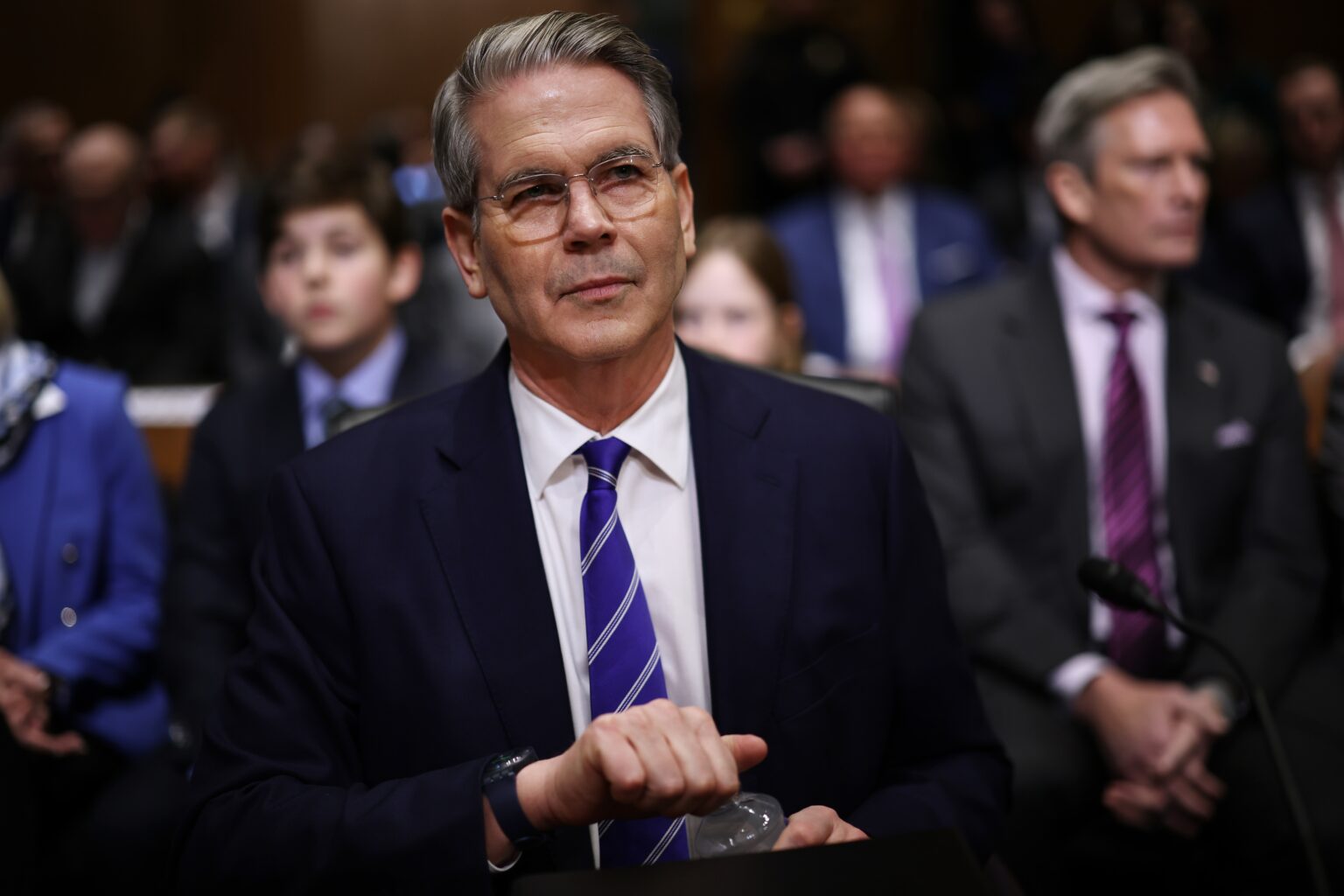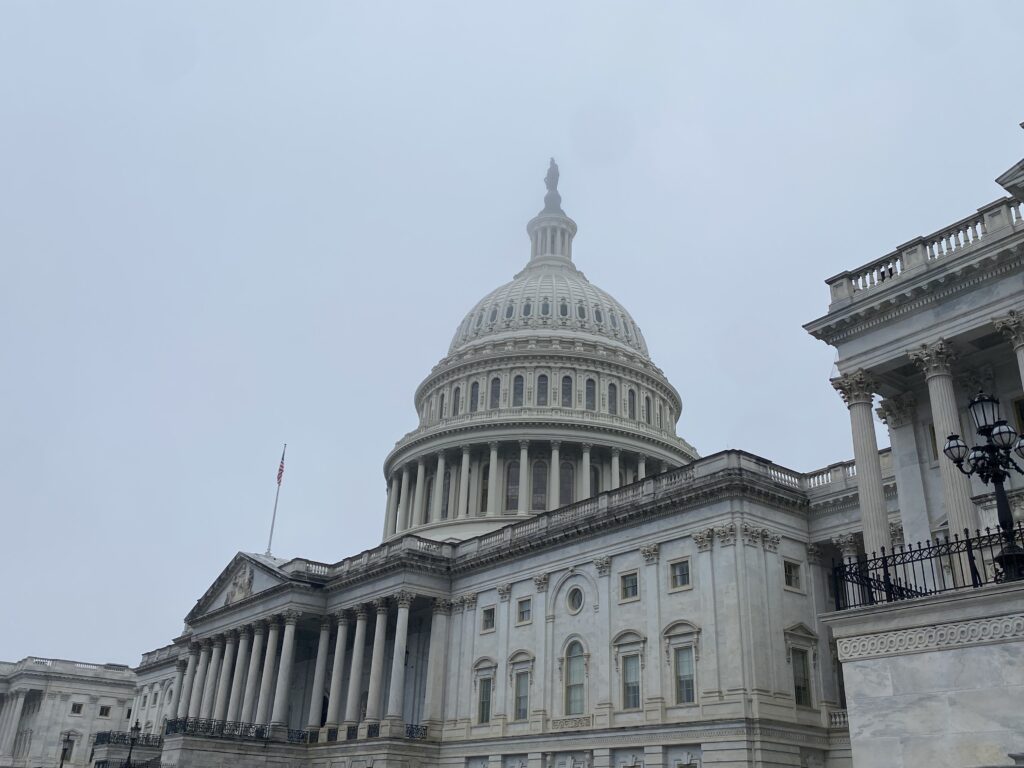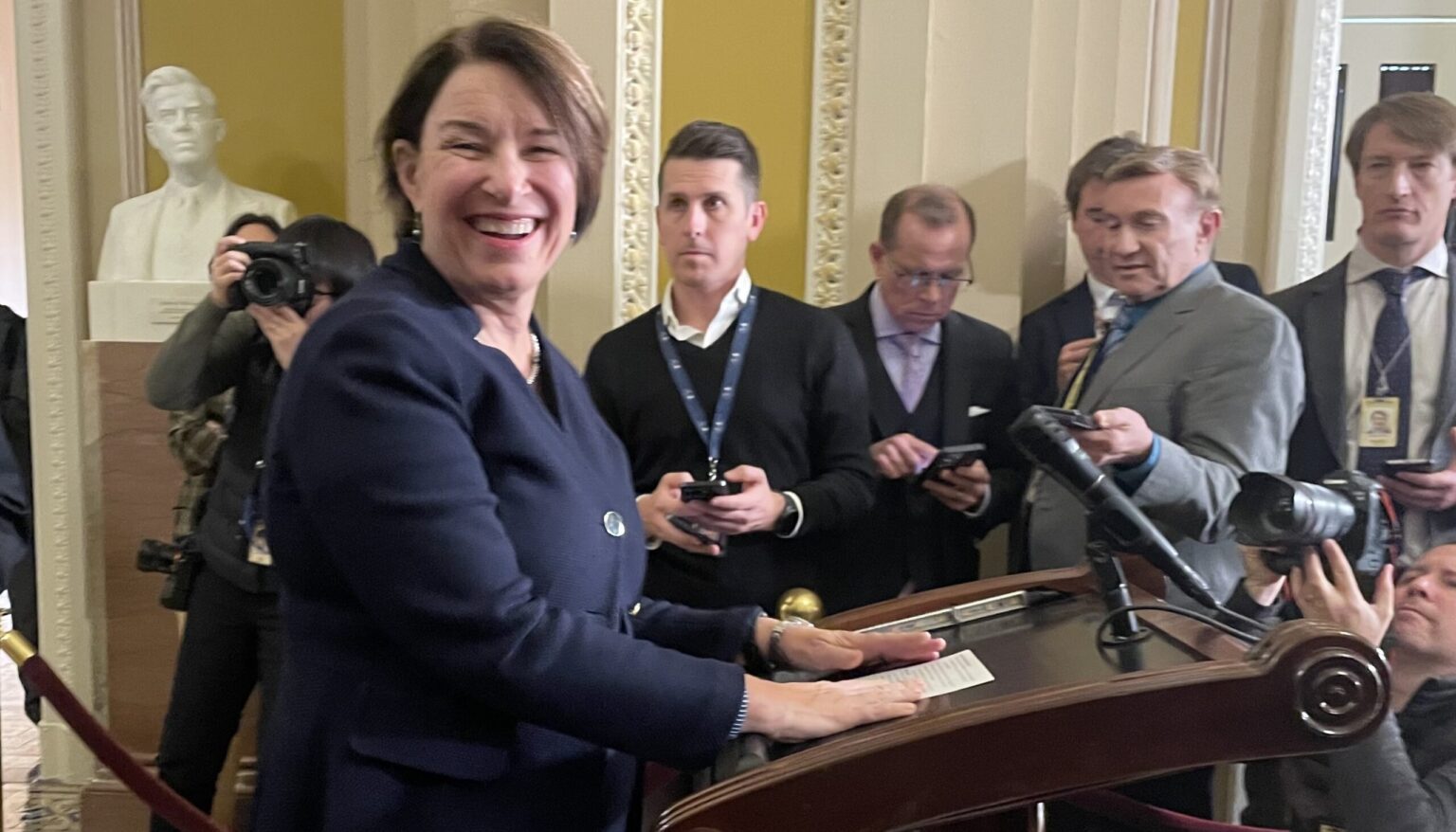Washington Following an extensive hearing on Thursday that included a great deal of discussion on tax policy and the impact of tariffs on regular Americans, President-elect Donald Trump’s nominee for Treasury secretary seemed to be headed for Senate approval.
During the Finance Committee hearing, Scott Bessent, a hedge fund manager whom Trump named his nominee in November, often referred to the new president’s ideas, even though he did explore his background and convictions.
Although Bessent hasn’t raised the kinds of worries that some of his fellow candidates have from left-leaning senators, GOP senators seemed to be much more favorable than Democrats.
There is no space for disagreement on your qualifications to serve as the next secretary of the Treasury. At the conclusion of the session, Idaho Republican Chairman Mike Crapo said. And you demonstrated during today’s hearing that your experience, education, and training are all specifically tailored for this position. Additionally, your personality and mannerisms are obvious.
Sen. Ron Wyden, a Democrat from Oregon and the panel’s ranking member, claimed at the beginning of the hearing that Bessent didn’t fit his qualifications for Treasury secretary.
According to Wyden, many people, including myself, hoped that the president-elect would appoint a stable individual to serve as Treasury secretary. This person would be a moderating influence, work with all parties, and particularly represent the interests of all Americans for a tax code that gives everyone in America, not just those at the top, a chance to succeed. A clue that this nominee will be the type of Treasury secretary I outlined would have been nice to have read.
At the start of the three-hour hearing, Republican Senator Lindsey Graham introduced his fellow South Carolinian and stated that he was highly qualified to serve in that capacity.
Graham stated, “I’m here today to tell you that this is the easiest vote you’ll ever take if you use qualifications as your test.” I assume you will vote no if your intention is to pretend that the election never took place.
Bessent was frequently questioned by both Republican and Democratic senators on the committee over the 2017 Republican lax law, commonly known as the Tax Cuts and Jobs Act.
Many of the tax provisions in that bill are scheduled to expire this year, and Trump and Republican members of Congress intend to extend them.
In order to avoid having to deal with Democrats, Republicans intend to pass their new bill through the convoluted budget reconciliation procedure, which has stringent requirements.
During his testimony, Bessent stated that the most significant economic problem of the day is whether the tax policy in the 2017 bill should be extended past its sunset date.
According to Bessent, we shall face an economic catastrophe if we do not renew and extend. As usual, the middle and working classes bear the brunt of financial volatility.
In response to a series of questions from Georgia Democratic Sen. Raphael Warnock, Bessent said that he supports Congress extending the 2017 law for Americans at all income levels, including those earning more than $400,000, $1 million, $10 million, or even $1 billion.
Bessent stated, “I don’t think we should continue the TCJA as it was at any income level.”
Restoring the former, higher tax rates for individuals earning between $400,000 and $1 million would probably result in an excessive number of small business owners being taxed, he added.
Bessent provided a similar response for those earning above $1 million, stating that he thought small business pass-through owners would suffer from higher taxes on that group of people.
When questioned about those earning more than $10 million annually, he stated that the federal government ought to want to implement incentives for them to invest. And that since they create jobs, those who earn more than $1 billion a year shouldn’t have their tax rates raised.
Bessent also discussed the spending side of the federal ledger, even though a large portion of his testimony was devoted to tax rates, which provide the majority of the funds available for federal programs.
Bessent stated that he thinks Congress has authorized excessive spending, not the government’s low tax and fee revenue, which is the reason of the nation’s yearly deficit.
According to Bessent, the United States of America has a spending problem rather than a revenue problem. To be clear, the realization that this spending was out of hand was one of the factors that motivated me to leave my calm life and desk for this campaign.
According to estimates from the nonpartisan Congressional Budget Office, the federal government spent $6.1 trillion and earned $4.4 trillion in fiscal year 2023. To cover all of the nation’s expenses, the Treasury Department had to borrow the remaining funds.
The majority of that expenditure, $3.8 trillion, was allocated to so-called mandatory programs including Social Security, Medicare, and Medicaid.
With $917 billion going to the domestic side of the ledger and $805 billion going to defense, the remaining federal spending was allocated to what are known as discretionary programs.
During his inaugural remarks, Bessent stated that he would suggest to Congress that federal domestic discretionary expenditure be adjusted in order to bring the nation’s fiscal house in line.
Congress could balance the budget by reducing all domestic discretionary expenditure, which supports hundreds of programs including public lands, transportation, border security, and agriculture, but this would probably have a big impact on the economy.
The majority of economists agree that Congress must raise revenue and cut spending in order to lower or eliminate the nation’s annual deficit.
If the Senate confirms Bessent, it could have some impact on whether the IRS keeps up a free tax filing program that was introduced just last year.
Wyden only promised to preserve the Direct File program for this year when he was questioned about it.
“I promise that this direct file will be operational for this tax season, and American taxpayers who opt to use it will,” he stated. And if verified, I will review and learn more about the program to ensure that it supports the IRS’s three objectives of privacy, customer service, and collections.
During the session, Bessent encouraged lawmakers to keep an eye out for three key areas, but he did not elaborate on when and how Trump intends to introduce tariffs once in office.
According to Bessent, one will be for redressing unjust trade practices, either by nation or industry, such as the steel tariffs imposed by China. Two, it might be for a more universal tariff to increase government budget revenue.
According to him, the third kind of tariff would probably encourage nations to engage in talks with the US on matters that Trump considers significant.
He thinks we’ve most likely moved past our sanctions issues. “And that sanctions may be pushing nations away from using the U.S. dollar so that the tariffs can be used for negotiations,” Bessent said, referring to Mexico’s ban on fentanyl imports.
Several Democrats on the panel and many economists outside of Congress disagree with Bessent’s assertion that he does not think the tariffs will increase the cost of goods for Americans.
Sen. Maria Cantwell, a Democrat from Washington state, expressed her hope that the Trump administration would reevaluate some of the planned tariffs.
Cantwell stated, “I do believe we’re going to see retaliatory tariffs,” noting that earlier tariffs had a detrimental impact on her home state’s agriculture.
In answer to a question from independent Sen. Bernie Sanders of Vermont, Bessent stated that he would probably advise Trump and Republicans against raising the federal minimum wage above $7.25 per hour.
He stated, “I think the minimum wage is more of a regional and statewide issue.”
Bessent called the timing and location of the Biden administration’s tariff implementation “not fulsome enough” and stated that he would completely back measures to increase sanctions on Russia in an effort to halt the crisis in Ukraine.
Should any Russian Federation officials be watching this confirmation hearing, they should know that I would be fully in favor of imposing sanctions, particularly on the Russian oil majors, to the extent that doing so would force the Russian Federation to negotiate, should I be confirmed and President Trump ask for them as part of his plan to end the war in Ukraine.



